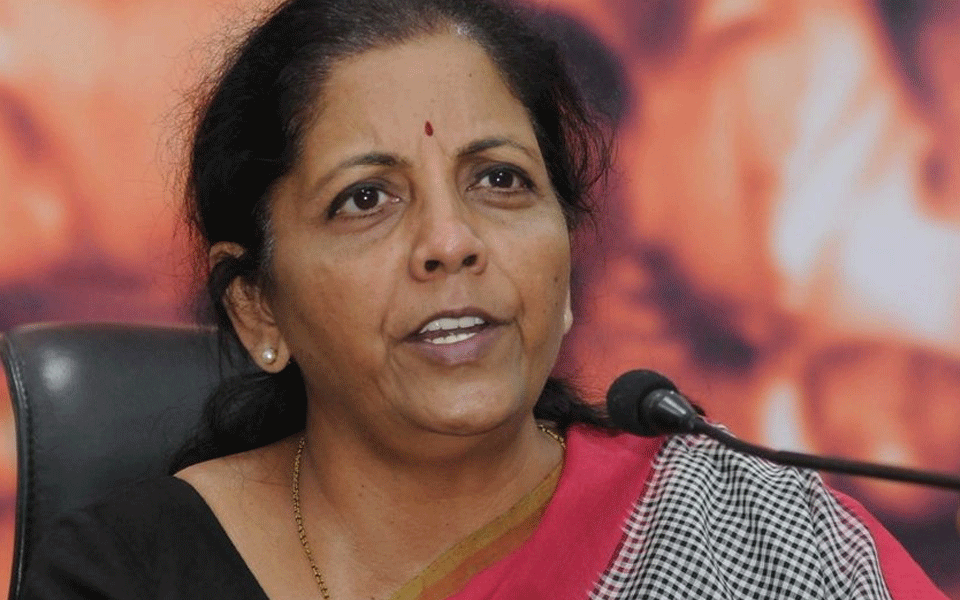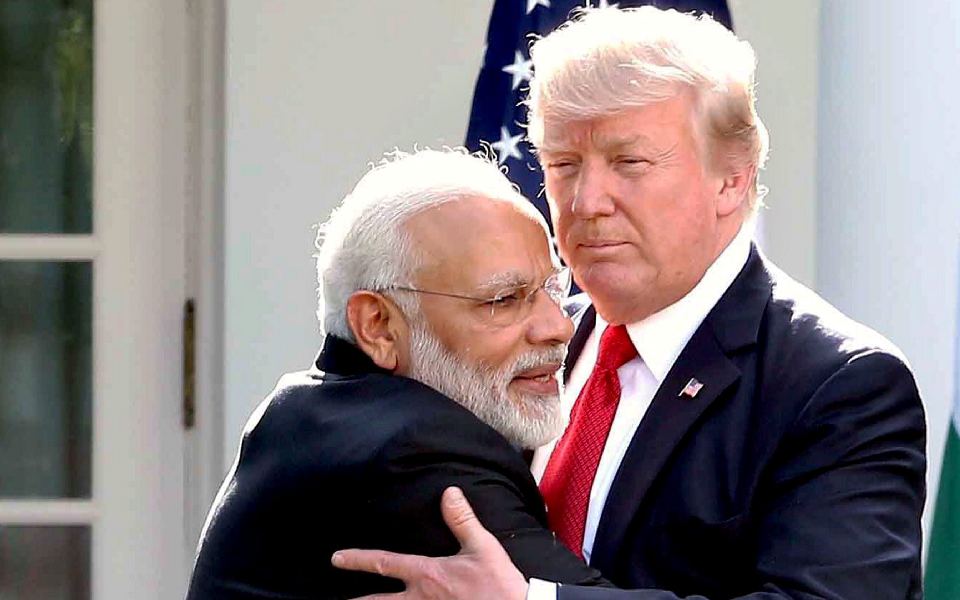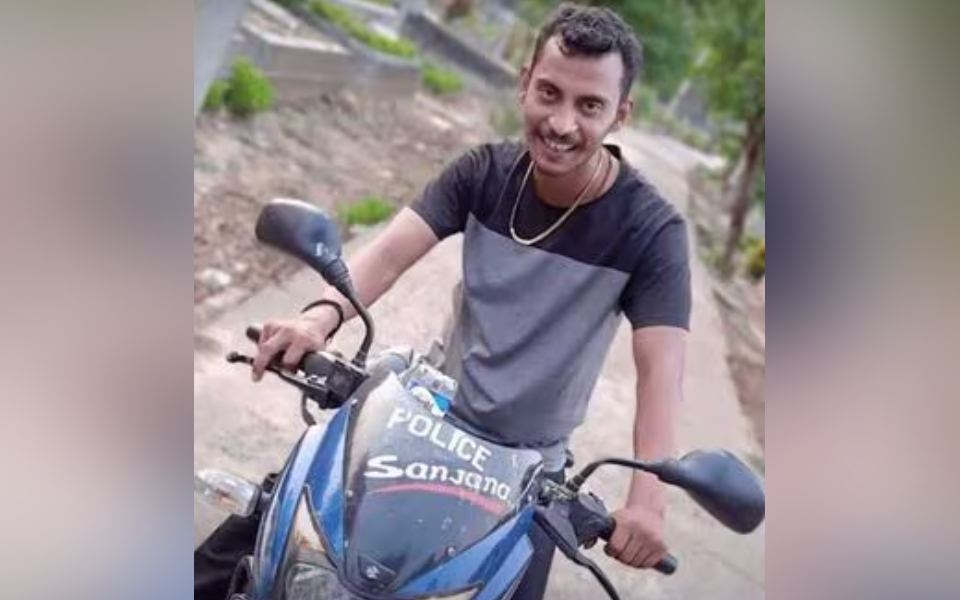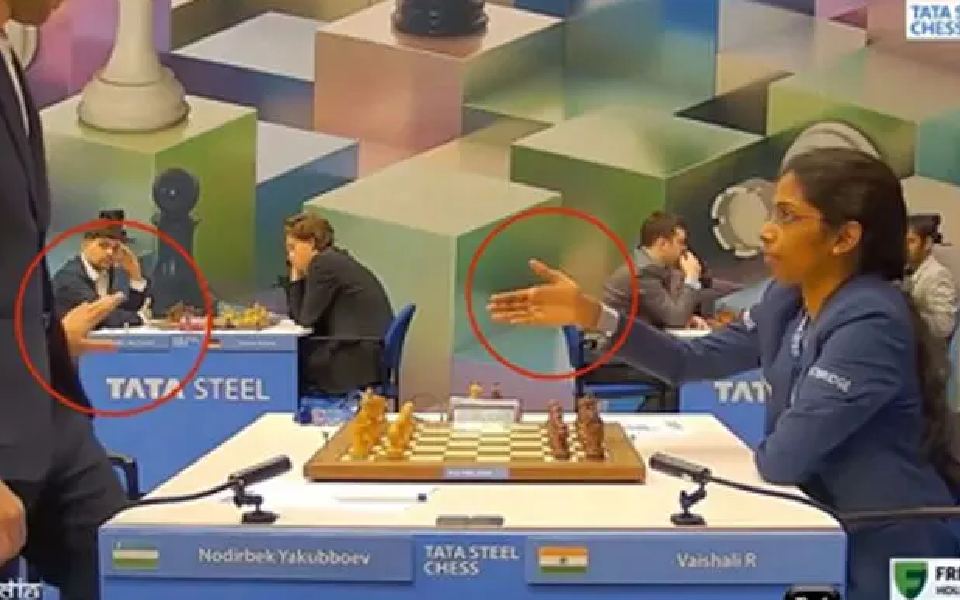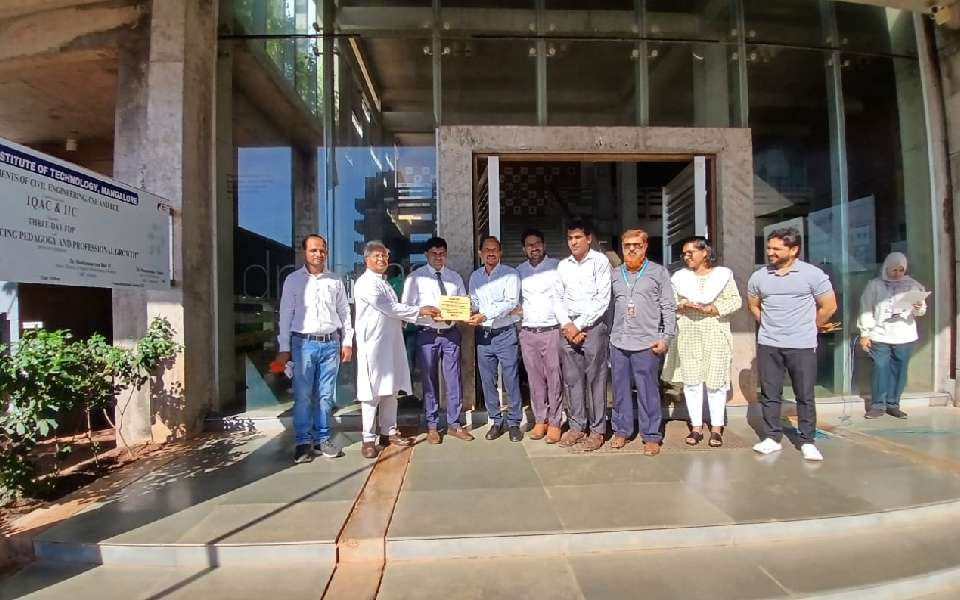New Delhi, Sep 15 : Defence Minister Nirmala Sitharaman has refused to reveal the exact full price of each Rafale aircraft fitted with weaponry, saying that "information leaked about the weapon systems can ultimately help Pakistan and China."
Sitharaman said in 'Aap Ki Adalat' programme on India TV that 36 Rafale fighter jets being purchased by government from France were nine per cent cheaper than the price negotiated by the previous UPA government.
According to an India TV release, she described as "white lie" the allegation made by the Congress that the approval of Cabinet Committee on Security was not taken for the Rafale deal.
"Saraasar jhoot hai (It's a plain lie). The PM visited Paris in 2015, where a memorandum of interest was signed. There was no need for CCS approval for this. Only after the prices were finalized, the Inter-Governmental Agreement was signed in September 2016, and for this the final approval of CCS was taken in August that year," she said.
Asked what happened to assertions by BJP leaders that if the party came to power, it "will get 10 heads in reply to two beheadings (by Pakistan Army)", Sitharaman said. "kaat to rahe hain, display nahin kar rahen" (heads are being cut off, but are not being displayed).
To a query about why she was not revealing the full price for each Rafale aircraft as demanded by Congress President Rahul Gandhi, she said: "For whom is he worried? By leaking information (about weapon systems fitted on Rafale aircraft), whom is he trying to help? By demanding replies from us, who will ultimately benefit? This is what I am seriously asking. Is it Pakistan, or China? Those countries which keep an evil eye on us will benefit. Do we have to do this? I am sorry that the president of the oldest political party sitting in the opposition is demanding this."
She said the government had disclosed the basic price of Rafale aircraft in Parliament, but Gandhi was comparing the basic price of Rafale aircraft with the final price, which he believes is Rs 1,600 crore.
"I do not know from where he got this figure. Even a child can understand this. He should compare basic prices."
Answering a query, she said: "We are very close to reaching "10i", meaning capability for 10 days intensive war.
Sitharaman said the talks for purchasing Rafale fighter aircraft began in 2007 during UPA regime and then they were put in cold storage for five years.
"In December, 2011 or January, 2012, it was announced that the basic price of each Rafale aircraft would be Rs 520 crore. Had the UPA government then purchased these aircraft at that rate in 2012, then the first of the 18 flyaway aircraft would have come by 2015 or 2016. By then, three per cent cost escalation per year would have come into force, and by 2015-16 it would have gone up to Rs 738 crore per aircraft."
On Rahul Gandhi's charge that Hindustan Aeronautics Ltd was overlooked in offsets, the Defence Minister said that HAL was already overburdened and its production capacity was less.
She said the government has given Rs 22,000 crore worth orders every year to HAL compared to Rs 10,000 crore during UPA government and had also placed orders of 83 more Light Combat Aircraft (LCA).
Sitharaman clarified that any offset deal with a private company was out of the purview of the Inter-Governmental Agreement and it was a commercial decision. "No company has been named in the IGA."
She pointed out that Indian Air Force's squadrons had come down from 42 to 33, and therefore, the deal was done at a fast pace.
"For 10 years they did nothing and sat on the files. Now when we have bought 36 Rafale aircraft to raise the operational efficiency of IAF, they are saying we have played with the nation's security. Who really played with the nation's security?"
Let the Truth be known. If you read VB and like VB, please be a VB Supporter and Help us deliver the Truth to one and all.
New Delhi, Jan 27 (PTI): Prime Minister Narendra Modi and US President Donald Trump on Monday vowed to work towards a "trusted" partnership between India and US and advance global peace and security in their first phone conversation since the American leader's inauguration last week.
Modi and Trump exchanged views on global issues, including the situation in West Asia and Ukraine, and deliberated on measures to boost bilateral cooperation in areas such as technology, trade, investment, energy and defence, an Indian readout said.
The two leaders agreed to meet soon, it said.
"Delighted to speak with my dear friend President @realDonaldTrump @POTUS.
Congratulated him on his historic second term," Modi said on 'X'.
"We are committed to a mutually beneficial and trusted partnership. We will work together for the welfare of our people and towards global peace, prosperity, and security," he said.
In a statement, the Prime Minister's Office (PMO) said the two leaders "reaffirmed" their commitment for a "mutually beneficial and trusted partnership".
"They discussed various facets of the wide-ranging bilateral Comprehensive Global Strategic Partnership and measures to advance it, including in the areas of technology, trade, investment, energy and defence," it said.
"The two leaders exchanged views on global issues, including the situation in West Asia and Ukraine, and reiterated their commitment to work together for promoting global peace, prosperity and security," the PMO said.
"The leaders agreed to remain in touch and meet soon at an early mutually convenient date," it added.
It is not immediately known whether the issues of immigration and tariff figured in the talks.
Like in many countries, there have been some concerns in India as well over the Trump administration's approach on immigration and tariff.
President Trump has already talked about slapping "100 per cent tariffs" on the BRICS grouping, a bloc that includes India too.
It is learnt that the phone call was initiated from the Indian side.
External Affairs Ministry Spokesperson Randhir Jaiswal said last week that India is looking for "bolder, bigger and a more ambitious" relationship with the US and indicated its readiness to work with the Trump administration to address issues like illegal immigration and trade.
The phone conversation between Modi and Trump came six days after External Affairs Minister S Jaishankar held separate meetings with US Secretary of State Marco Rubio and National Security Advisor Mike Waltz in Washington.
Jaishankar also attended the Quad foreign ministers' meeting in the American capital. The meeting was the Trump administration's first foreign policy engagement.
At a media briefing in Washington on January 22, Jaishankar said his meetings signalled that the Trump administration "prioritising" the bilateral relationship with India.
The external affairs minister also said that there was agreement between the two sides about the need to be bolder, bigger, and more ambitious about the bilateral relationship.
Asked about the Trump administration's policy on tariff and immigration, Jaiswal said on Friday that India is looking at addressing issues in a constructive manner.
"Our approach has always been to address issues in a constructive manner which is in keeping with the interests of both countries," he had said at his weekly media briefing last week.
"We remain in close communication with the US administration and would like to continue to work towards strengthening our economic partnership further," he said.
India is also keen to continue cooperation under the Initiative on Critical and Emerging Technology (iCET) that was launched during the tenure of the Biden administration.

